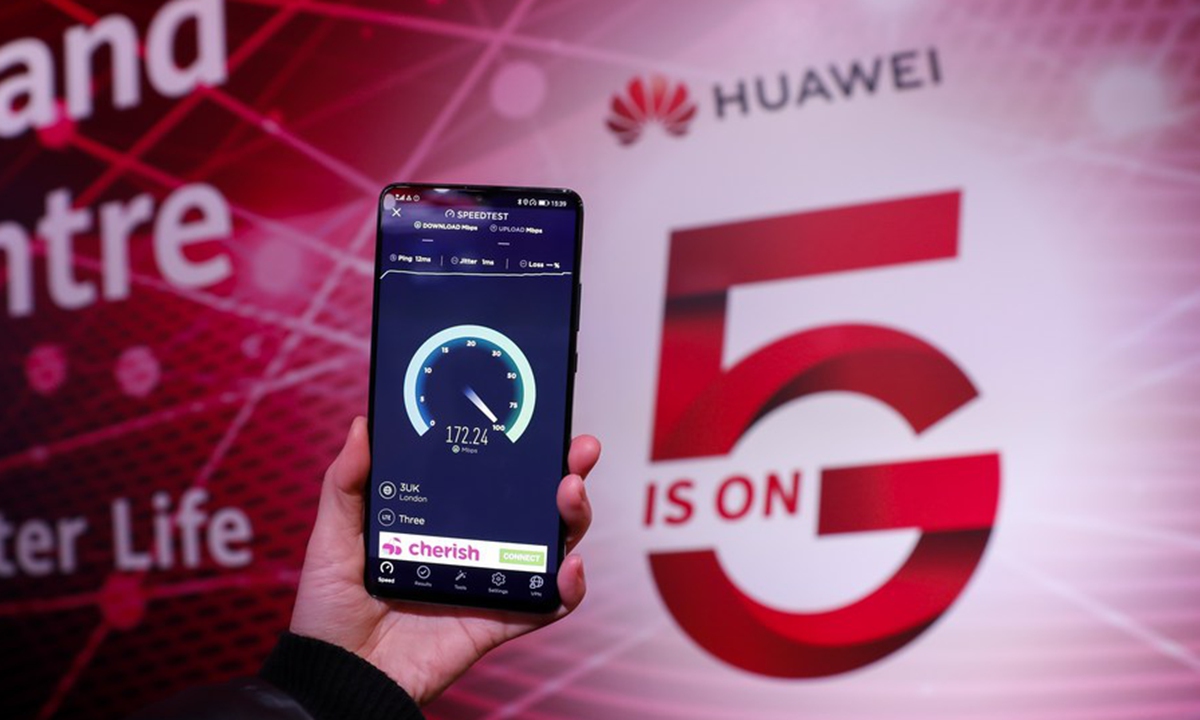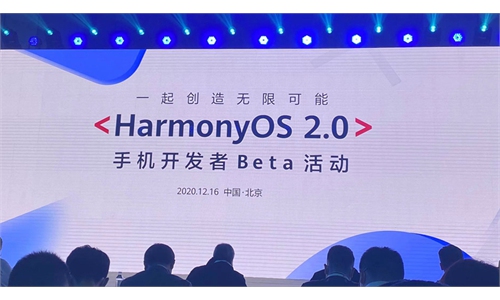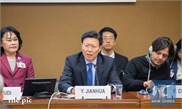Huawei gets conditional approval from Germany, may ‘have more opportunities’ in other European countries: analyst

Huawei 5G File photo: Xinhua
Huawei on Wednesday gained conditional approval in Germany to participate in the country's 5G construction, the move, though still needs parliamentary review, is considered by many as a phased victory for the Chinese tech giant in Europe amid US crackdown, and also offered hopes that more countries in the continent may loose restriction on it in the future.
Chancellor Angela Merkel's cabinet approved a law that would allow Huawei's continued presence in Germany. The new IT law gives the authorities the power to block Huawei from Germany's 5G network on security grounds, but it does not exclude the Chinese company outright from the German telecoms market, according to media report.
Huawei did not reply to an interview request on the matter from the Global Times on Thursday.
It's in line with the long-term interests for Germany, as well as the European Union, since the continent will need Huawei as mass scale 5G layout in Europe gradually starts, Xiang Ligang, director-general of the Beijing-based Information Consumption Alliance, told the Global Times on Thursday.
Huawei's European counterparts - Ericsson and Nokia - may have the ability to construct 5G in the region, but will take longer time and more money, Xiang said.
If the incoming Biden administration may take a less confrontational approach toward China, Huawei may have more opportunities in the Europe, Xiang said, noting that even those who have claimed to completely shut out the Chinese tech firm, may turn back to the firm as "they really need the firm."
Nevertheless, analysts cautioned that "uncertainties" remains a "keyword" for the firm's fate in Europe for a long term. And countries may still likely to withdraw their decision anytime amid external political uncertainties.
A Swedish appeals court on Wednesday said the Swedish Post and Telecom Authority (PTS) would be able to conduct 5G spectrum auctions, setting aside an earlier ruling, though it remained an option for Chinese telecom equipment maker Huawei to appeal the decision, Reuters reported.
Last month, PTS said it was halting 5G spectrum auctions.
Huawei has been facing headwinds in Europe for over a year, as the firm was locked in a trade spat between China and the US, the latter has been pressuring its allies to ban the company from their 5G networks, citing so-called national security reasons but failed to provide any evidence so far.
In January, the EU published a "toolbox" of recommendations for its member states, saying they could either "restrict or exclude" so-called high-risk 5G vendors, such as Huawei, from core parts of their telecoms networks.
So far, several nations, including Finland, France, Poland, Romania and Sweden, have moved to implement some restrictions on Huawei, though using different approaches.
"The EU has attached great importance to 'cyber security', which may either due to pressure from the US or rooms for Nokia and Ericsson," Jiang Junmu, chief writer at telecom industry news website c114.com.cn, told the Global Times on Thursday.
But we can still expect more movement in this area, Jiang said.
Despite challenges, Huawei has still managed to increase its share of revenue in the telecom-equipment market to 30 percent over the first three quarters of 2020, compared with 28 percent for all of 2019, according to research-firm Dell'Oro Group.



